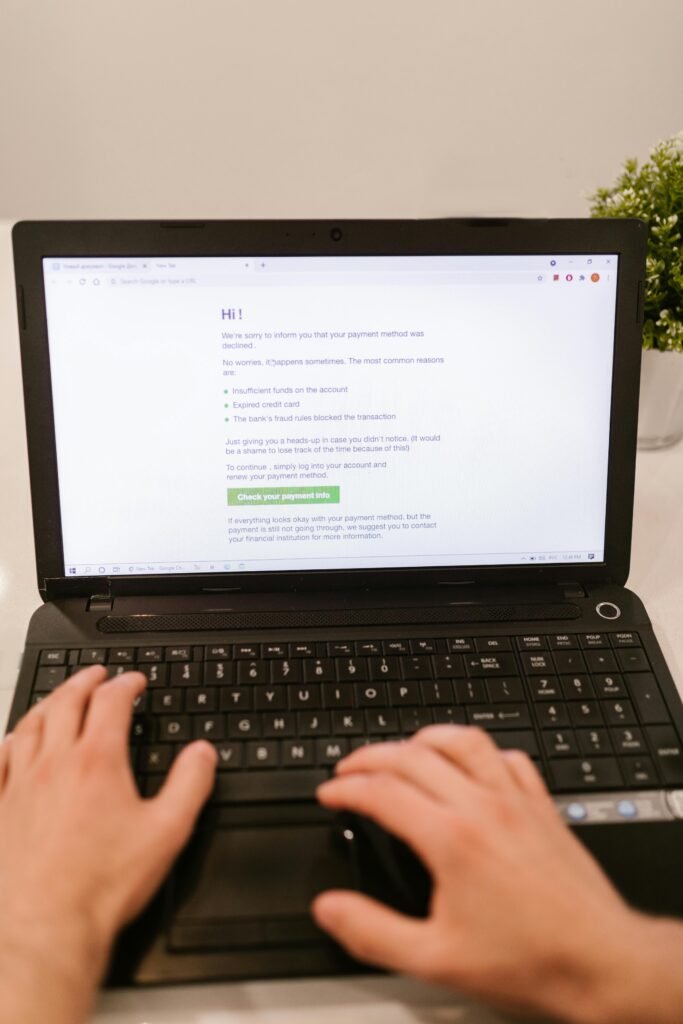In today’s digital economy, your online store isn’t just a website — it’s the heartbeat of your business. Whether you’re launching your first product or scaling an established brand, choosing the right ecommerce web developer can make or break your success.
But here’s the thing: Not all developers are created equal. Some are magicians with code but lack design sense. Others can create beautiful layouts but fall short when it comes to site performance, security, or conversion optimization.
So, how do you choose the right ecommerce web developer for your needs?
Let’s break it down — step by step.
🚀 1. Understand What an Ecommerce Web Developer Actually Does
Before hiring, you need to understand what you’re really paying for.
An ecommerce web developer is responsible for building, customizing, and maintaining online stores. This includes:
- Designing responsive, user-friendly storefronts
- Integrating payment gateways like Stripe or PayPal
- Ensuring your website loads quickly and securely
- Implementing features like product filters, shopping carts, wishlists, etc.
- Optimizing for SEO and mobile usability
- Troubleshooting bugs and making updates as your business grows
Think of them as the architect and builder of your online shop. And the better they are, the more seamless your customer experience will be.
🎯 2. Define Your Project Goals and Platform
Let’s get specific. Before even speaking to a developer, ask yourself:
- Are you starting from scratch or rebuilding?
- What platform will you use? Shopify, WooCommerce, Magento, BigCommerce?
- Do you need any custom features? Like subscription billing or multi-vendor marketplaces?
- What’s your budget range and ideal launch date?
Clarity here will help you filter out developers who aren’t a good fit. For example, if you’re building on Shopify, you need a developer experienced in Liquid (Shopify’s templating language), not just general HTML/CSS knowledge.
🧠 3. Look for a Developer with Ecommerce-Specific Experience
This is key. Don’t just hire any web developer — hire someone who specializes in ecommerce.
Why?
Because ecommerce websites require:
- Cart functionality
- Secure checkout systems
- Product databases
- Inventory syncing
- Payment integrations
- Marketing automation tools
Someone who understands these systems will save you time, money, and a lot of headaches.
💡 Pro Tip: Ask for a portfolio with links to live ecommerce stores they’ve developed. Don’t be shy about exploring those sites and evaluating their performance and design.
🔍 4. Evaluate Technical Skills and Tools
A good ecommerce web developer should have a strong command of the following:
| Area | Tools & Skills |
| Front-End | HTML, CSS, JavaScript, React, Vue |
| Back-End | PHP, Node.js, Ruby on Rails |
| Ecommerce Platforms | Shopify, WooCommerce, Magento, BigCommerce |
| Databases | MySQL, MongoDB |
| CMS & Plugins | WordPress, Shopify apps, WooCommerce extensions |
| Payment & APIs | Stripe, PayPal, API integrations |
Also, don’t underestimate the importance of version control (Git), project management tools (like Trello or Asana), and basic SEO knowledge.
💬 5. Ask the Right Interview Questions
Treat this like a job interview — because it is.
Here are some questions to ask a potential ecommerce web developer:
- What ecommerce platforms are you most comfortable with?
- Can you show examples of stores you’ve built in my niche?
- How do you approach mobile responsiveness and page speed?
- Do you offer post-launch support or ongoing maintenance?
- Have you worked with SEO or CRO (conversion rate optimization)?
- What’s your process for project timelines and communication?
Their answers will reveal their professionalism, confidence, and compatibility with your vision.
💡 6. Don’t Forget UX & Design Thinking
A beautiful site that’s hard to use is still a bad site.
Your ecommerce web developer should understand basic UX (User Experience) and UI (User Interface) principles — like clear navigation, intuitive product pages, fast loading, and visual hierarchy.
Even better? If they work closely with (or as) a UI/UX designer.
📄 7. Clarify the Deliverables in a Written Contract
Always get everything in writing — even if you’re hiring a freelancer.
Your contract should include:
- Project scope and timeline
- Technology stack and platform
- Payment schedule and total cost
- Ownership rights to the website and code
- Maintenance terms (bug fixes, updates, etc.)
This protects both you and the developer — and helps avoid scope creep or miscommunication.
📊 8. Check Reviews, Testimonials & Client Feedback
One of the best ways to vet a developer is by asking their past clients.
Look for:
- Testimonials on their website or LinkedIn
- Google reviews or Clutch profiles
- References you can contact directly
- Case studies that show before/after results
“Did the store launch on time?”
“How was communication during the project?”
“Would you work with them again?”
If the answers are positive, you’re on the right track.
🛠️ 9. Consider Post-Launch Support & Scalability
Your store isn’t a “set it and forget it” deal.
A great ecommerce web developer will offer support after launch — for bugs, feature requests, or platform updates.
Also, ask how scalable their development approach is. Can your site handle:
- Increased traffic during sales?
- New products and collections?
- International currencies or multiple languages?
Future-proofing is part of the job.
🧭 Final Thoughts: Your Developer Is Your Long-Term Partner
Hiring the right ecommerce web developer isn’t just about skills — it’s about trust, communication, and shared vision.
Your developer will influence the speed, usability, and profitability of your store. That’s a lot of responsibility. Take your time to vet candidates, ask detailed questions, and invest in someone who understands the business side of ecommerce — not just the code.
Because in the end, your website should do more than look good — it should sell.







